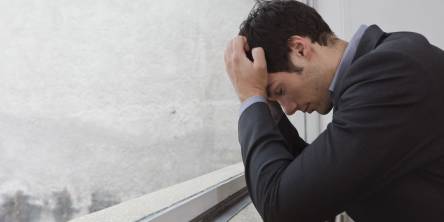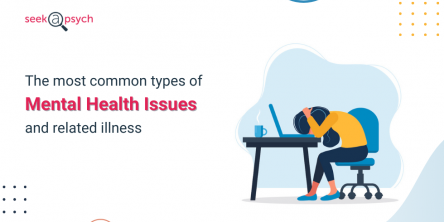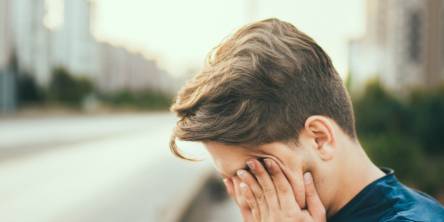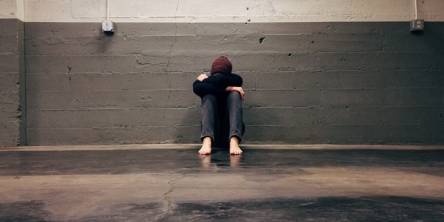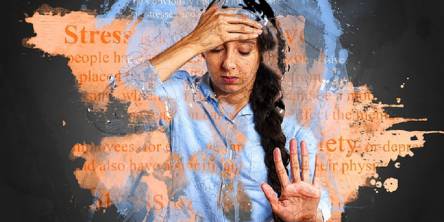6 Ways to Naturally Reduce Anxiety
Anxiety is a normal part of life. It's the outcome of being overworked. However, worry caused by stress is not always a bad thing. It warns you of danger, pushes you to stay organized and ready, and aids in risk assessment.
If stress begins to resurface daily, it is critical to take action before it develops and becomes chronic anxiety.
Unchecked anxiety can have a substantial influence on your quality of life. Take control by playing with the ideas below.
How to treat anxiety?
Anxiety can be handled in several ways. Cognitive behavioral therapy (CBT) is a prominent treatment option that helps people manage anxiety when it occurs. This can be done either in person or through online therapy.
There are also drugs, such as antidepressants and sedatives, that work to balance brain chemistry and avoid anxiety attacks. They may even protect against the most severe symptoms.
If you want a more natural approach, there are both small and large strategies to assist in anxiety treatment.
You can change your behaviors like exercise, sleep, and diet. You might even try something completely new, such as aromatherapy or meditation. Whatever your lifestyle demands, there is a natural solution for everyone to help reduce anxiety.
6 natural remedies for anxiety
1. Stay active
Regular exercise is beneficial to your mental health as well as your physical health.
Exercise may have an anti-anxiety impact for a variety of reasons. Exercise can help you focus your attention away from anything that is making you anxious.
Increasing your heart rate alters brain chemistry, making more room for anti-anxiety brain messengers (neurotransmitters) such as:
- gamma-aminobutyric acid (GABA)
- serotonin
- endocannabinoids
- brain-derived neurotrophic factor (BDNF)
According to the American Psychological Association (APA), regular exercise improves concentration and willpower, which helps alleviate some anxiety symptoms.
What type of exercise you do is a matter of personal preference.
2. Steer clear of alcohol
Because alcohol is a natural sedative, it may take the edge off at first. Heavy drinking, on the other hand, can disrupt the balance of brain messengers known as neurotransmitters, which are crucial for positive mental health. This interference causes an imbalance, which may result in anxiety symptoms.
3. Consider quitting smoking cigarettes
Smokers frequently seek a cigarette amid stressful situations. Taking a puff on a cigarette when you're worried, like drinking alcohol, is a short cure that may aggravate anxiety over time.
If you want to quit smoking, there are numerous options available to you. The Centers for Disease Control and Prevention (CDC) suggests substituting toothpicks for cigarettes.
You can also develop routines that will divert you to create an environment conducive to your smoke-free life. You can also devise a strategy with a support system that can supply anything from encouragement to distraction.
4. Prioritize getting a good night’s rest
Sleep has been repeatedly shown to be a crucial component of optimal mental health.
You can prioritize sleep by doing the following:
- sleeping only at night if you're exhausted.
- no reading or watching TV in bed.
- avoid using your phone or tablet in bed.
- stop tossing or turning in your bed.
- keeping your room dark and cool
- avoiding caffeine, large meals, and nicotine before bedtime
- going to sleep around the same time each night
- writing down your worries before going to bed
5. Eat a balanced diet
Some people may experience mood changes due to low blood sugar levels, dehydration, or chemicals in processed foods such as artificial flavorings, artificial coloring, and preservatives. A high-sugar diet may also affect temperament.
Check your eating habits if your anxiety intensifies after eating. Drink enough water, avoid processed foods, and eat a well-balanced diet high in complex carbs, fruits and vegetables, and lean proteins.
6. Practice deep breathing
Anxiety is characterized by shallow, rapid breathing. It can cause a racing heart, dizziness or lightheadedness, and even a panic attack.
Deep breathing techniques, which involve taking slow, deep breaths, can help reestablish regular breathing patterns and reduce anxiety.
Similar Articles
Anxiety is a normal human emotion that everyone experiences from time to time. It is often characterized by feelings of unease, worry, fear, or apprehension about upcoming events or uncertain situations. Anxiety becomes a concern when it is excessive, persistent, and interferes with daily life.
Anxiety is a widespread mental health problem that affects many people all over the world. It is characterized by worry, tension, and fear, which can interfere with normal life. While anxiety is reasonable in some situations, severe and chronic anxiety can be exhausting and require professional support.
Mental illness is a common concern we hear every day. 3 out of every 5 people are suffering from a mental illness or distress causing difficulty. Thus, it is essential to be fully aware of the common types of mental health issues and related illnesses.
With the COVID pandemic entering its second year, many of us have to cope with the ongoing stress of anxiety, depression, fear, and many other issues.
For far too long, society has been putting pressure on us to avoid most of our emotions. Out of the five core emotions - fear, hurt, anger, sadness, and joy - the emphasis tends to be on the last one.
Anxiety is a feeling of worry or fear. We are all aware of this feeling, and depending on what is causing the anxiety, it can be mild or severe. However, when anxiety becomes long-lasting and one is unable to get rid of it, it can impact a person’s daily functioning.
Are you in a problem with anxiety? This is the article where you will learn how to more effective your anxiety treatment.
For both the patient and the caregivers, the condition of dementia is a burden, which comes with many limitations and problems. In order to make the course of the disease nevertheless as pleasant and helpful as possible, you can use various tips and tricks in dementia care, which make it easier to deal with the patient.
Your brain holds the reins of your courage by creating or accepting societal suitability rules 'au fait'. You only see what you are 'programmed' to see. Weakened ability to see means that your assessment skills critically slump and destroy your image of the world. With this realization, easy and accessible self-improvement techniques are at your arm's lengths

76f4.jpg)
